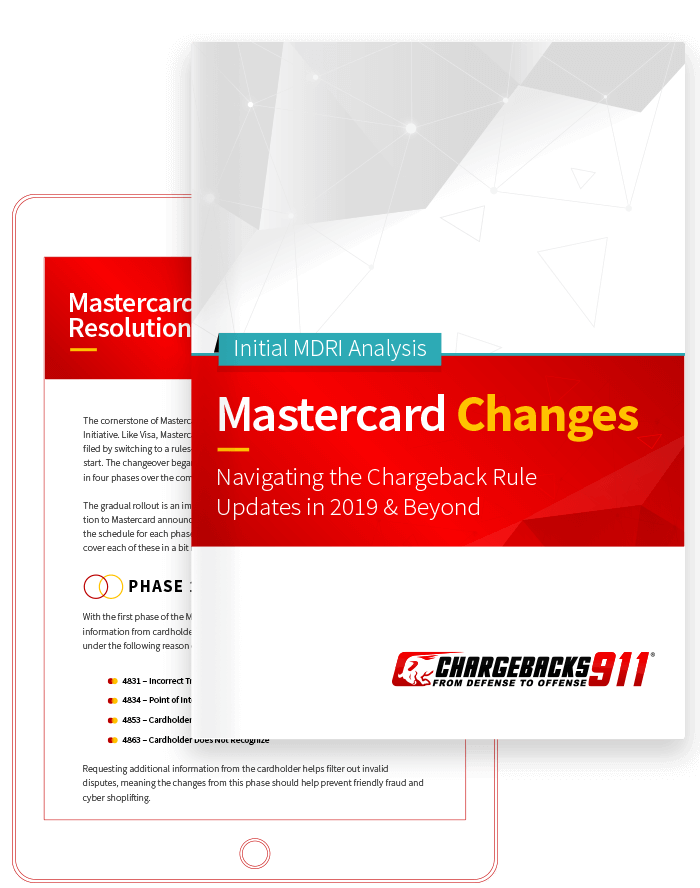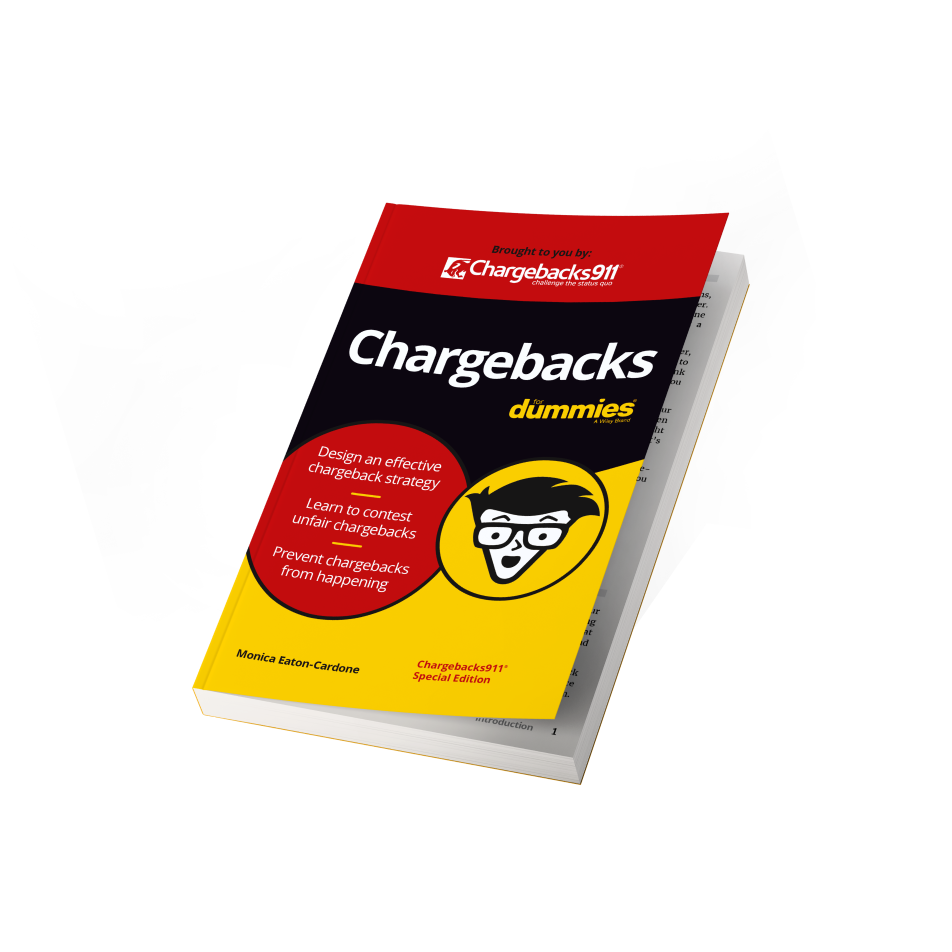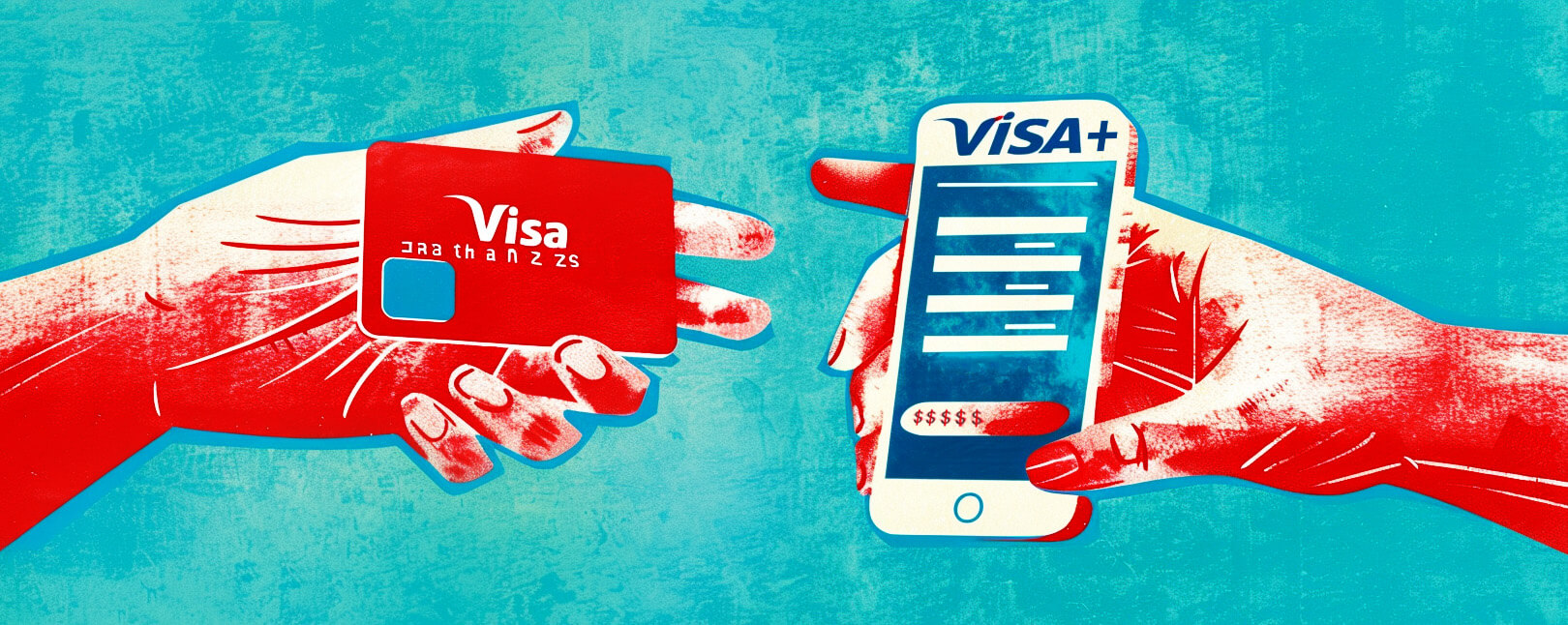Let’s say that you’re a merchant. You want to do right by your customers and provide them with the best service possible. Yet, even though you try your best, you still get hit with chargebacks.
Mistakes happen, and occasional problems will arise. If only your customers would contact you before calling the bank, you’d be happy to resolve any issues for them, right? Well, the good news is that, with the rollout of the new Mastercom Collaboration tool, that's could be much more likely.
Recommended reading
- How to Use a Contactless ATM & Where to Find Enabled Devices
- Terminal ID Number (TID): What is it? What Does it Do?
- What is EMV Bypass Cloning? Are Chip Cards Still Secure?
- Dispute Apple Pay Transaction: How Does The Process Work?
- Visa+: Get the Most Out of Digital Wallets With This Tool
- Mastercard Installments: How Mastercard BNPL Works
Why is a New Chargeback Process Necessary?
Before diving in, let’s take a quick look at the present lay of the landscape regarding Mastercard chargebacks.
Chargebacks are a serious pain point. The operational costs associated with a single chargeback can be significantly higher than the dollar value of the original transaction. In fact, for every dollar lost to chargebacks in 2019, the average merchant lost an additional $2.60 due to merchandise, fees, overhead, and other sources of loss.
As a merchant, you face the brunt of chargeback losses. However, you’re not alone; they create headaches for many players within the Mastercard ecosystem.
Learn more about Mastercard chargebacksBanks and other parties face billions in losses each year tied to chargebacks. Issuers face processing costs, liability losses, and write-offs, while acquirers get hit with processing costs and card network fees. So, many parties at play could benefit from a more streamlined, efficient, and faster process for resolving transaction disputes.
Into this environment, enter Mastercom Collaboration.

Mastercard Changes: Navigating the Chargeback Rule Changes in 2019 and Beyond
Like Visa with 2018’s VCR, Mastercard is implementing sweeping changes to its chargeback and dispute systems. Download our whitepaper to learn what changes are coming, and how to prepare.
Free DownloadWhat is Mastercom Collaboration?
Mastercom is Mastercard’s end-to-end dispute resolution platform. Mastercom has been in place for years. However, a new workflow being offered through the platform aims to provide merchants with the opportunity to rectify a dispute before it becomes a formal chargeback.
In September 2022, Mastercard will be rolling out the enhanced version of its existing Collaboration tool for all the players within the payment journey. Collaboration will work like an early warning system for chargebacks, notifying you that a cardholder has disputed a charge. This gives you time to review the claim and see if you can resolve it directly.
This has already been available to issuers and merchants. But, as of July, acquirers will be able to join the party. By looping acquirers into the Mastercard Mastercom Collaboration ecosystem, the card network hopes to provide even better functionality and information sharing capability.

Common Question
When does Mastercom Collaboration go live?
As of this writing, Mastercard suggests that Collaboration will be available to merchants and acquirers beginning September 11, 2022. This date is subject to change, however, if Mastercard determines that more time is needed for institutions to get onboard.
How Mastercard Collaboration Worked Previously
Before this upcoming enhancement, the solution already played a part in helping reduce chargebacks. It worked in a more limited capacity, though.
Previously, there had been no acquirer participation. Merchants were able to participate in Collaboration through the Ethoca Merchant Network and Ethoca Alerts. Participating issuers were then able to alert merchants of an impending cardholder dispute in real-time.
If the dispute in question was fraud-related, the merchant could decide to prevent the inevitable chargeback by refunding the cardholder. This notification also allowed the merchant to stop the fulfillment of any merchandise or service not already provided.
Typically, though, the merchant would have learned of a dispute several days—even weeks—after the related transaction. If that happened, the merchant would have lost sales revenue and any products or services that had already been provided to the buyer.
Need help with integration?
Chargebacks911® offers Mastercom Collaboration as part of our extensive alert and chargeback prevention package. Click here to learn more today.

Transaction and purchase information could also be shared between the merchant and issuer under the legacy arrangement.
Mastercard’s Consumer Clarity powered by Ethoca provided on-demand, enhanced data to issuing banks and their cardholders directly from the merchant. This assisted in recognizing disputed transactions and subsequently preventing chargebacks.
Using the pre-existing system, rich data could be delivered via the issuer’s mobile app by the cardholder tapping on the transaction. It could also be accessed directly via the issuer’s call center following a cardholder notification of the disputed transaction.
How Will Mastercom Collaboration Work?
When an issuing bank decides to dispute a cardholder’s transaction, their course of action will depend on whether they have a direct relationship with Ethoca or not. If they have, then they’ll initiate the collaboration request directly through Ethoca. The request will then pass to them along those rails.
If the issuer is not part of the Ethoca network, the request will pass directly to the acquirer instead. The acquirer then views the case from the appropriate queue in Mastercom. After reviewing the claim, they either contact the merchant directly for instructions on how to respond or respond on their merchant’s behalf based on a predetermined agreement.
If the issuer has no direct relationship with Ethoca, the collaboration request is initiated directly through Mastercom. At this point, the request is sent to the merchant via Ethoca if a connection between the two exists. Otherwise, it will be sent to the acquirer, who will respond on the merchant’s behalf through Mastercom.
If the request goes to the merchant, they will have 72 hours to respond. Otherwise, the paused dispute will be automatically rejected. This will likely result in a chargeback.
What Response Options Do Acquirers & Merchants Have?
The acquirer will have four response options when acting on a merchant’s behalf:
#1 | Accept the dispute & contact Mastercard
Acknowledge that the request is valid or otherwise not worth progressing. Mastercard will refund the issuer directly on the acquirer’s behalf. This is called a Funds Movement Request. The good news is that merchants can avoid a chargeback while also letting the acquirer handle the refund. However, Mastercard will assess a fee for this response, as well as an additional fee for processing the refund.
#2 | Acknowledge
Acknowledge that the request is valid or otherwise not worth progressing, and notify the cardholder that a refund will be processed directly by the merchant. Again, the merchant may avoid a chargeback, but a fee will be assessed by Mastercard. Also note that, if the merchant responds with intent to initiate a refund, they must provide the refund transaction ID afterward so that Mastercard can compare the case to the refund issued. The merchant will be required to submit two responses, but will have no extension of the original time limit.
#3 | Disregard
After the issuer has removed the funds from the acquirer, the acquirer will deduct funds from the merchant’s account to cover the chargeback amount. With this course of action, the acquirer has free reign to resolve the situation directly with their merchant, without having to involve other parties.
#4 | Reject the dispute
If the acquirer/merchant believes the inquiry is invalid, they may reject the claim. The issuer can then respond with a chargeback, but the merchant can re-present the transaction. This offers the potential for greater revenue retention, but will also negatively impact the merchant's chargeback rate. Keep in mind that the 72-hour grace period could allow merchants time to consider whether they have the necessary compelling evidence to choose option four and challenge the dispute.
How is This Different From Chargeback Alerts?
Chargeback alerts are a very similar product in a lot of ways. They give merchants advance notice of pending disputes, allowing them to refund the buyer and avoid a chargeback. However, there are some differences to consider.
First, chargeback alerts have functionality across different card networks. Merchants enrolled in an alerts network can receive alerts for Mastercard, Visa, American Express, and Discover cards. At Chargebacks911®, we provide notifications through Ethoca Alerts and Verifi CDRN, as well as our proprietary network, offering broad coverage across card brands.
Second, notifications provided through Mastercom allows for transactions to be refunded either by the merchant, or by Mastercard directly on the merchant's behalf. With chargeback alerts, however, the card network does not get involved. Refunds are facilitated by the solution provider instead.
Finally, participation with Mastercom Collaboration demands compliance with rules as determined by Mastercard. Failure to comply with these rules could lead to the merchant getting hit with a noncompliance fee. Chargeback alert providers, in contrast, do not assess these fees.
| Chargeback Alerts | Mastercard Collaboration |
| Available for transactions conducted using all major card networks | Applies only for Mastercard transactions |
| Provided by a third-party service | Provided directly by Mastercard |
| Managed by a merchant, or through a third-party service provider | Managed through acquirers and Mastercard |
| Transactions are refunded by the merchant, or the merchant’s service provider | Transactions are refunded by the merchant, or by Mastercard |
| A fee is assessed for each chargeback alert | A fee is assessed for every Mastercom notification, and additional fees may apply for noncompliance |
Mastercom Collaboration vs. Visa Rapid Dispute Resolution
Visa Rapid Dispute Resolution is another advance notification system. Like with Mastercom notifications, the purpose of Visa RDR is to give merchants and acquirers advance notice about pending disputes. However, there are some key differences between the two platforms.
First, RDR allows for automatic refunds. With Mastercom, the refund process is manual. Mastercard requires a response from the merchant, verifying that they will refund the buyer, or that the buyer has already been refunded. This process could take up to 72 hours.
At the same time, the automatic functionality of RDR means that merchants have to work with pre-set rules governing what transactions can—and can't—be refunded. Collaboration, however, allows for more flexibility as merchants have to review cases on an individual basis, then submit a response.
Finally, RDR rules require that merchants reconcile all cases in the relevant CRM. In exchange, the rules guarantee that refunded transactions won't become chargebacks. Mastercom only requires that select cases be reconciled.
| Visa RDR | Mastercard Collaboration |
| Refunds are conducted automatically | Refunds are conducted manually |
| Resolution is instantaneous | Resolution may take up to 72 hours |
| Rules for which transactions are eligible for refund are pre-set | Rules for eligibility are not pre-set; allows for greater flexibility |
| All cases must be reconciled in a CRM | Some cases require reconciliation in a CRM |
| Refunded transactions are guaranteed against chargebacks | Refunded transactions only guaranteed against chargebacks in certain situations |
Mandatory Participation is Good News for Merchants
Mastercard always intended for the rollout of Collaboration to be a phased process. While there’s certainly been some success in reducing chargebacks and associated costs, the real game-changer will come in July.
The success of Collaboration previously relied on issuers taking part. However, not all did. Beginning in July, it will be mandated for all issuers to participate either through Ethoca or Mastercom directly.
This will have a profound effect on the dispute landscape. If merchants/acquirers are connected to Collaboration, they will have the option to decide how they want to respond to the dispute before it becomes a chargeback. Equally, because Collaboration is mandatory, the issuer will not be able to process a chargeback directly through Mastercom without allowing the merchant time to resolve it beforehand.
When a chargeback hits, there will no longer be that surprise or bewilderment for merchants. While chargebacks are never pleasant, at least they won’t catch you off guard.
The Way Forward: A Fundamental Change
With this change to Mastercom Collaboration, merchants can now choose whether to resolve disputes prior to a chargeback being raised. This ties in neatly with the requirement of some dispute types for the cardholder to attempt to resolve the dispute with the merchant before raising it with their issuing bank.
This seems perfectly fair and reasonable. While cardholders are expected to contact merchants before disputing charges, they rarely do so. Up to 73% of consumers contact their bank first to query a transaction, thus depriving the merchant of the opportunity to resolve the issue.
Consumers have no idea of the possible implications a chargeback may have on a merchant. Come September, however, merchants will at least have the opportunity to put the dispute to bed before going through the lengthy, drawn-out chargeback process.
Key benefits for merchants include:
Whatever route the collaboration request takes to reach the merchant, the fundamental sea change is that the merchant will now benefit from making an informed decision on a dispute before it becomes a chargeback. In doing so, they can save themselves the cost and the hassle of the dispute resolution process. Cardholders ultimately benefit from this, as disputes get resolved faster, and lower costs for merchants can translate to lower prices for consumers.
Help is Available
Mastercard Collaboration will be a step in the right direction. It balances out the process and gives merchants the much-needed opportunity to influence the progression of a dispute before it becomes a fully-fledged chargeback.
Of course, some of these inquiries will still inevitably progress to the chargeback phase. Need additional help with assessing available evidence and building solid cases? No problem—Chargebacks911® is on hand.
The industry experts at Chargebacks911 offer unparalleled knowledge, experience, and expertise in the field. We can provide everything necessary to provide the best possible chance of a successful outcome.










